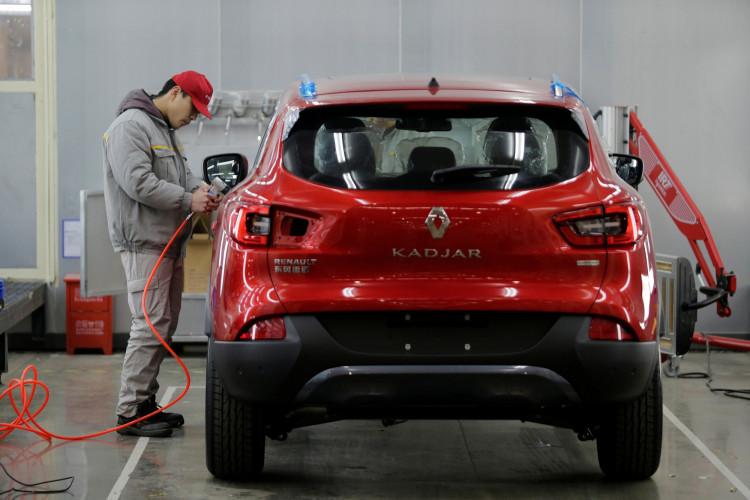French automaker Renault has officially bowed out of its Chinese joint venture company after years of lackluster sales. The company revealed this week that the three-month shutdown of its assembly plant in Wuhan has forced it to give up on its prospects in the world's largest car market and any hopes of ever catching up to the competition.
According to a statement issued to the Hong Kong Stock Exchange, Renault has agreed to transfer its 50 percent stake in its Chinese joint venture to its local partner Dongfeng Motor Group. The company will however still be operating in China and will mainly be focusing on producing light commercial vehicles such as trucks and vans.
Renault stated that with its exit in Wuhan, the company will be focusing on its joint venture company with China Brilliance Automotive in Shenyang. The automaker added that it will also be bolstering investments in developing new energy vehicles such as its fully-electric Renault City K-ZE sport utility vehicle (SUV) for the Chinese market.
In a separate statement, Dongfeng Motor mentioned that the economic downturn has greatly affected the joint venture's operations and shareholders intent to restructure the company to better cope with the crisis. The Chinese automaker added that it will immediately stop engaging in business activities related to the Renault brand once the stake transfer is completed.
Renault will be the second international automaker to halt producing passenger vehicles in China since Suzuki Motors exited the country in 2018. The Japanese automaker stopped producing cars in China to focus more on the Indian market, a market which it currently dominates through its joint venture with India's Maruti Udyog Ltd.
The French company's decision to exit China comes after years of lackluster sales following the establishment of the Dongfeng Renault joint venture in 2013. Since the creation of the joint venture, the company has had consistently low sales relative to its installed capacity.
In 2018, Dongfeng Renault reported a sales decline of around 31 percent, selling only around 50,000 for the entire year. The figure was well below the company's initial 90,000-unit target. Last year, the company only sold around 18,500 units in China, a further 63 percent drop when compared to the previous year's sales.
The spread of the coronavirus pandemic in China earlier in the year served as the final nail on the coffin on the joint venture's business. With continually shrinking sales and fewer people visiting its showrooms, Renault finally gave up on the joint venture, choosing to instead focus on its more profitable ventures.





